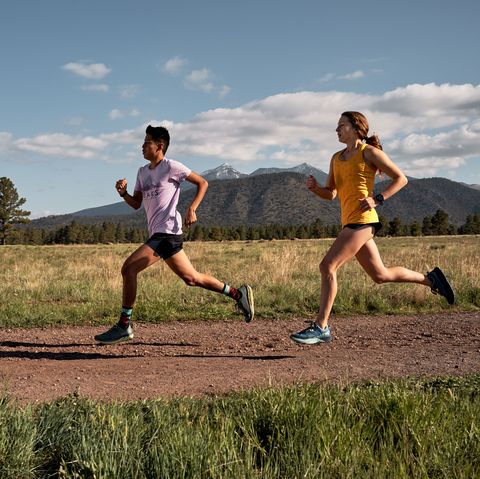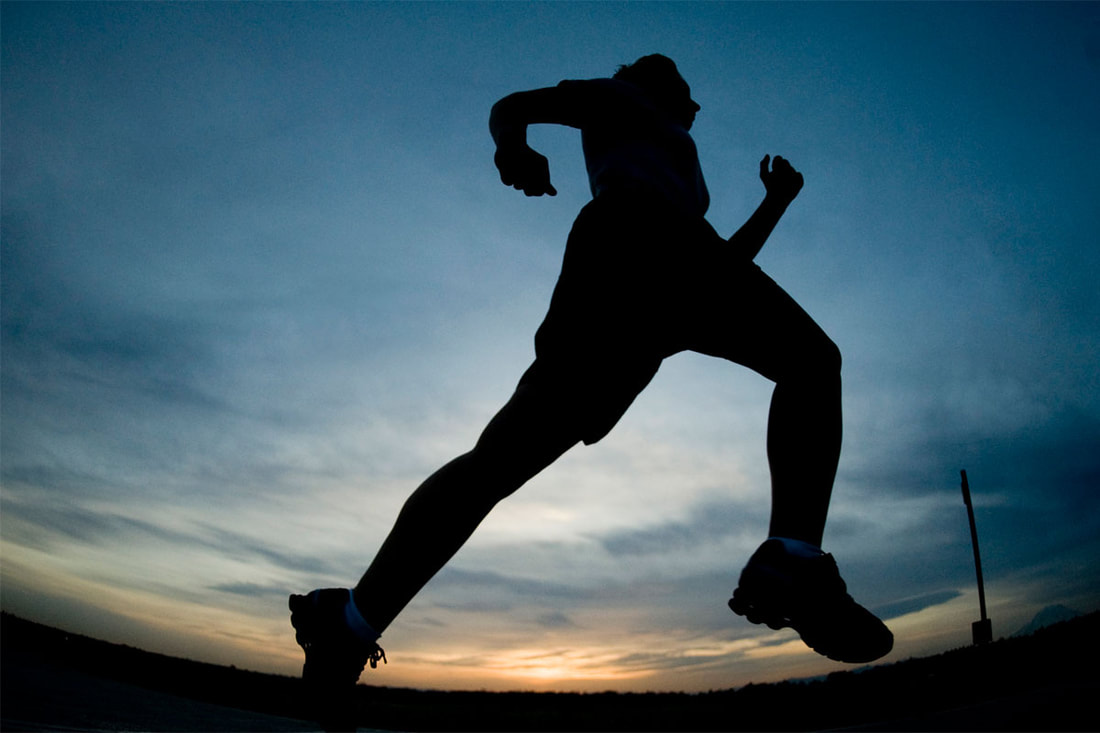|
As race day approaches, marathoners want to know what shape they are in and which pace is right i.e. the pace that allows them to finish in the fastest possible time and avoid the slow down that happens towards the end of the race. These are just 3 of the workouts I prefer to use to help gauge pace for athletes. The predictions are not perfect by any means, but I find that they work for most people completing a marathon. As you prepare for your next race or marathon, these workouts can be helpful in your race day planning with your coach or for you to use if you are self-coached. fast ending long runsThe Fast Ending Long Run has quickly become a popular workout for elite & competitive marathoners. In the fast ending long run, you run the first 13 - 19 kms of a 22 - 30 km long run at your normal long run pace. However, over the last 5 to 10 km of the run, you progressively run faster and faster. Once you’ve become used to this workout, I’ve found that if you can finish these long runs strong and fast, you are on target to achieve your marathon goal. Fast ending long runs are very tough workouts so you shouldn’t do them very often or run too many of them in any one marathon training cycle. I would suggest alternating a weekly fast finish long run with a more typical weekly long, steady run. If you can run 3 to 5 of these fast long runs in the 8 to 12 weeks prior to your marathon, they become quite an accurate predictor of your ability to not just run the marathon but to race your best marathon time. Lastly, you shouldn’t plan to ‘taper’ for your fast ending long runs. Go into each one as you would any other long run otherwise the pace you achieve won't be as accurate of a predictor of your best marathon pace. long distance raceAnother favourite marathon predictor workout is a long distance race. I really like for atheltes training anywhere from half marathon to marathon to race a 10km or half-marathon a few weeks prior to the marathon (though any race from 15K to 30K works). An estimate of your marathon time is to double your half-marathon time and add five minutes. For example, if you run 1:30:00 for a half-marathon then this method would predict that you could run 3:05:00 for a marathon. This may vary for the individual though. I have sometimes found that doubling your half-marathon and adding seven minutes is slightly more accurate for most runners. No matter how you do it though, a long distance race is another great workout that can help you accurately predict your fastest marathon pace. I should add that it will also depend on how close to your race the race is important. A minimum of three weeks between a half-marathon and the marathon for example, however I would suggest more likely 4 to 5. Also, the longer the race, the further away from the half marathon or marathon it should occur. yasso 800'sThe third prediction workout comes from the team at Runner’s World and is called Yasso 800s. You might have heard or seen of it before.
Named after the famous Bart Yasso the theory behind Yasso 800s is that your time in minutes and seconds for a workout of 10 times 800 meters (two laps of the track if you have access to one) with equal recovery time (jogging slowly) is the same as the hours and minutes of your marathon time. For example, if you can run 10 times 800 meters in three minutes and 20 seconds with three minutes and 20 seconds recovery jog, then this predicts that you can run three hours and 20 minutes for your marathon. Run 2:40 for the 800s and you can run 2:40 for the marathon. This is a pretty hard workout so get ready for it and be well rested as you would for any normal workout. This workout should feel how a 10km race feels. Early repeats are fast however controlled like the first 3km of a 10km race feel. The middle repeats get harder and require more concentration and effort like the middle 4km of a 10km race. The last few reps are very hard like the last 3km of a 10km race. Because this workout is easy to budget for time wise and doesn't require massive amounts of recover, I like to include it 2 or 3 times in a marathon training cycle. It not only provides a good predictor of marathon pace but allows you to chart your increasing fitness which is a big confidence builder. I sometimes use all three of these predictor workouts with each athlete I coach training for a marathon and recommend that you do the same. These three workouts give you a great overview of your total capabilities, your endurance and durability (fast ending long run), your ability to run fast for a long period of time (long distance race) and your aerobic capacity (Yasso 800s). Taken together, I find them to be very, very accurate. PLEASE NOTE All of these workouts assume that you have done all the training for a marathon e.g. consistent volume of running, long runs, lactate threshold workouts, etc and so on. You can’t just go run one of the predictor workouts and expect it to be accurate if you’ve not done the training. Without the proper prerequisite marathon training, you may find yourself in a world of trouble late in the race! At the end of the day all predictors are estimates. There are always going to be unknowns which you cannot control on the day, what the weather will be like, how your competition will pan out and numerous other factors. However, I’ve found that the above workouts will offer marathoners helpful information that can aid in your race planning with your coach. Prepare the best you can, believe in your plan, respect the distance you are racing, use these predictor workouts to establish a smart race plan with your coach and hope for the best on race day. Happy training
1 Comment
|
AuthorSimon Brooker is an accredited Multisport and Running Coach based in Brisbane, Australia Archives
July 2022
Categories
All
|



 RSS Feed
RSS Feed